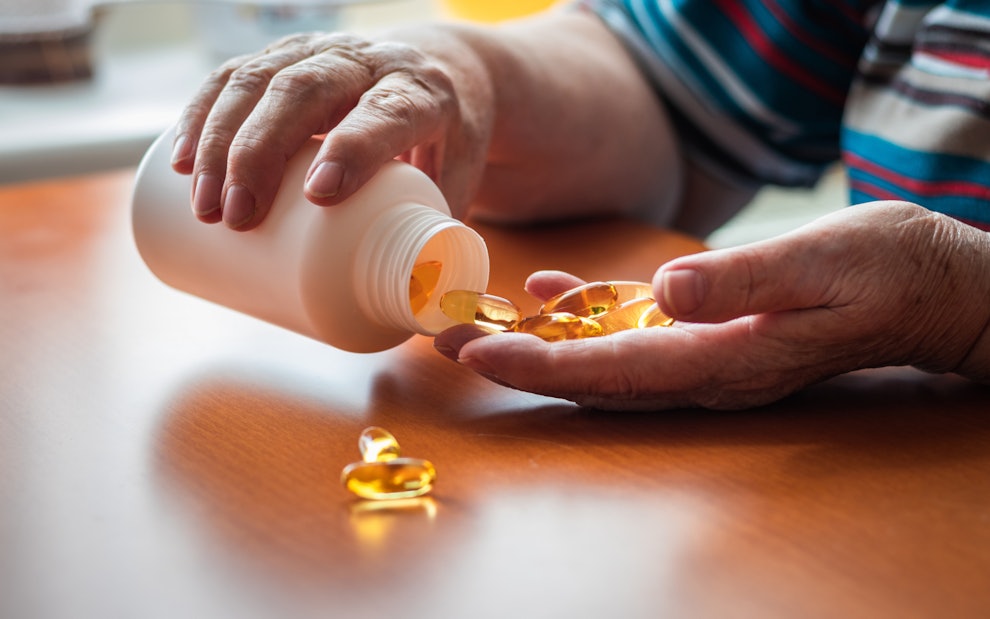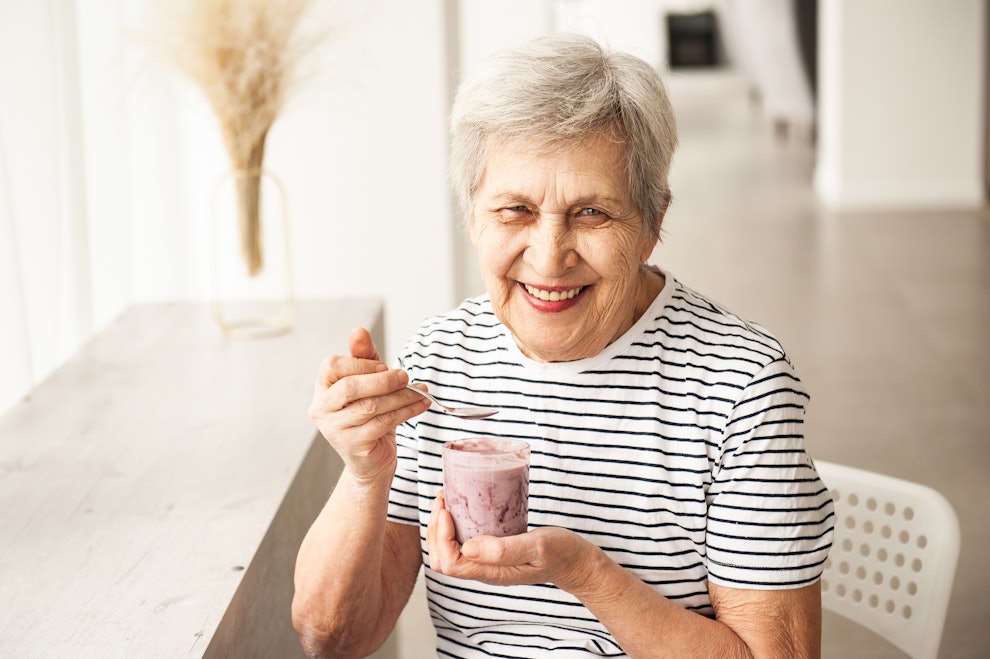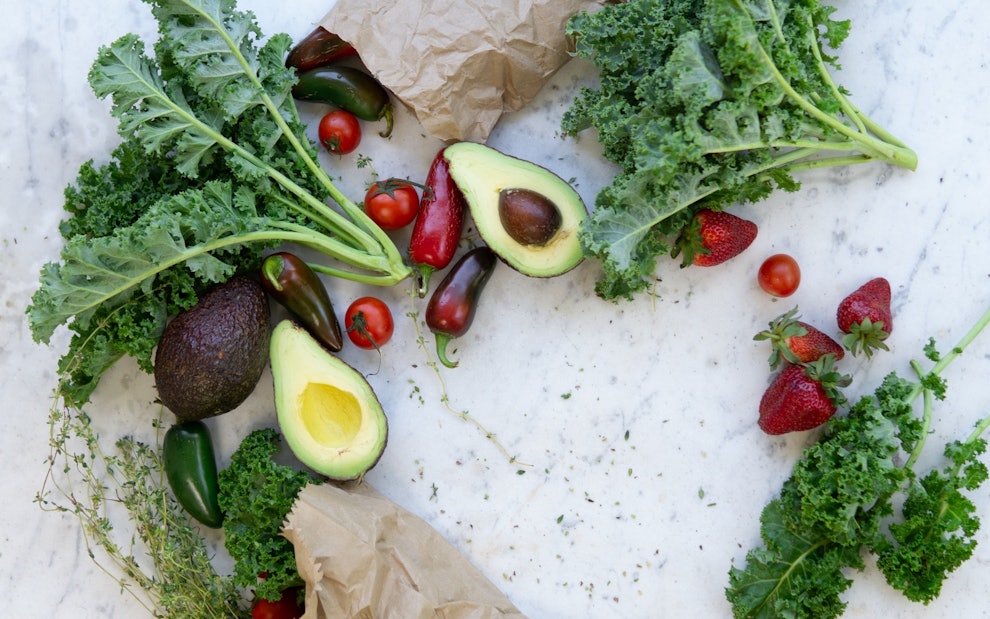Article at a glance
Vitamins and supplements support many important functions in your body — including reducing inflammation and memory loss, strengthening bones, and maintaining your vision.
It’s important for seniors to get the right amount of vitamins and supplements every day.
Vitamins for seniors can be obtained through food sources, but seniors can also boost their diet with supplements specific to their needs.
Many vitamins and supplements for the elderly deliver important health benefits, making them a major part of your daily routine.
Before adding any vitamins to your daily routine, talk to your doctor about your unique health needs to develop a plan that benefits you.

A well-rounded diet includes healthy foods that nourish your body with the vitamins and minerals it needs to thrive. Ideally, you’ll get your vitamins from food sources, but supplementing your diet with senior vitamins works, too. Vitamins and supplements play a role in a variety of health functions, including keeping your bones strong, reducing inflammation, maintaining your vision, and reducing any memory loss as you age. Talk to your doctor about which, if any, vitamins you should take. Your doctor will consider your overall health and medications when making any recommendations. Read on to learn more about the top vitamins for seniors over 70.
1. Vitamins for Elderly: Vitamin D
Vitamin D is an important vitamin for people of all ages, but it’s especially critical for seniors. The main source of Vitamin D is sunlight, which prompts your body to produce vitamin D. This vitamin helps keep your bones healthy by improving its ability to absorb calcium. In seniors, strong bones are especially important because as people age, their bones lose density and become more likely to fracture. A vitamin D deficiency can also increase your risk of developing osteoporosis. A daily dose of 600 to 800 IU (international units) of vitamin D is recommended.
2. Calcium

As people age, the bones naturally lose calcium, which can result in weak bones that are more likely to break. It’s recommended that people over the age of 51 (nearly 20 years before you reach age 70) get at least 1,200 milligrams of calcium every day. A calcium supplement can help, and you can also add calcium-rich foods, such as milk and yogurt, to your diet.
3. Vitamin B6
Vitamin B6 plays a role in boosting the immune system and regulating metabolism. Some research indicates that this vitamin may also help limit cognitive decline as you age. Even though this vitamin is widely available in many foods, including chicken, bananas, and spinach, some seniors are still deficient in vitamin B6. The recommended dietary allowance of vitamin B6 is 1.3 mg until age 70. After age 70, men need 1.7 mg, and women need 1.5 mg of vitamin B6 per day.
4. Vitamin B12

Vitamin B12 is an essential part of a daily diet for healthy seniors. Vitamin B12 plays a critical role in many functions, including making DNA, forming red blood cells, and ensuring that nerves function properly. Interestingly, because one cannot get too much vitamin B12, there is no set tolerable upper limit for the amount you can take. The vitamin B12 dosage for seniors is 2.4 mcg per day. You can find vitamin B12 primarily in meat and seafood, so if you follow a meat-free diet, it’s especially important to supplement your diet with vitamin B12.
5. Acetyl-L-Carnitine
Recommended senior supplements also include acetyl-l-carnitine, which essentially turns fat into energy. It is made in the brain, liver, and kidneys. Taking acetyl-l-carnitine as a supplement has several health benefits, primarily related to brain function and memory. Seniors who are facing some degree of cognitive decline may choose to take acetyl-L-carnitine to improve memory and mental function. This supplement can also help reduce fatigue and restore energy.
6. Senior Vitamins: Vitamin A
Vitamin A is also important for seniors. This vitamin improves your immune function, which can help keep you healthy. It also plays a role in your vision, which may naturally decline as you age. Many food sources are rich in vitamin A, including broccoli, eggs, sweet potatoes, and squash. The National Institute on Aging recommends that men get 900 mcg (micrograms) Recommended Daily Allowance (RAE) of vitamin A every day and women get 700 mcg RAE.
7. Vitamin E
Vitamin E offers a variety of health benefits, making it one of the important vitamins for seniors over 70. It delivers antioxidant benefits that can help to protect you from cancer and heart disease. It also helps reduce the risk of aging-related eye issues, such as macular degeneration. Vitamin E may also help slow cognitive decline as you age. Foods such as broccoli, almonds, avocados, and olive oil are good sources of vitamin E. You can supplement your diet with vitamin E, and a dose of 15 mg per day is recommended.
8. Fish Oil
Fish oil is rich in omega‑3 fatty acids that can enhance many functions of your body. It offers benefits for your heart health, including helping to lower cholesterol and reduce blood pressure. It can also help maintain good brain function and support eye health, which often declines as you age. Fish oil is also associated with reducing chronic inflammation associated with obesity, diabetes, and depression. Fish is your best source of this vitamin, but you can supplement it with up to 1,000 mg of fish oil every day. Fish oil is available in capsules (with no taste) at your local drug store.
9. Fiber Supplements
As you age, fiber becomes even more important in y our daily diet. Getting enough fiber every day can aid in digestion, reduce constipation, and help you avoid other stomach issues. Fruits, vegetables, and whole grains are good sources of fiber. You can also add a fiber supplement. It’s recommended that men over age 51 get 28 grams of fiber every day and women of the same age get about 22 grams of fiber per day.
10. Multivitamins
Multivitamins allow you to enjoy the benefits of several vitamins in one easy daily pill. A multivitamin for women over 50 often includes many of the 13 essential vitamins, which include vitamins A, C, D, E, K, and B vitamins. Multivitamins for senior men offer the same key vitamins to maximize their health.
Vitamins for seniors over 70 can be an important part of your daily diet. It’s always recommended to get your vitamins from food sources, such as fruits, vegetables, and whole grains. But, taking supplemental vitamins can be an effective way to ensure that you’re getting your daily intake. You can take a daily multivitamin or individual supplements depending on your health needs. Before you begin taking a new vitamin or supplement, talk to your doctor to ensure that there will be no interaction with any of your current medications. Also, check with your doctor on which vitamins and supplements will work with your normal diet and will benefit your overall health.
Sources
- https://www.health.harvard.edu/staying-healthy/vitamin-d-and-your-health-breaking-old-rules-raising-new-hopes
- https://www.umh.org/assisted-independent-living-blog/bid/259786/calcium-content-tips-for-seniors#:~:text=Yet%20as%20you%20continue%20to,1%2C200%20milligrams%20of%20calcium%20daily.
- https://acl.gov/sites/default/files/nutrition/Nutrition-Needs_Vitamin-B6_FINAL‑2.18_508.pdf
- https://aging.idaho.gov/wp-content/uploads/2021/01/Nutrition-Needs_Vitamin-B12_FINAL‑2.18.pdf
- https://extension.sdstate.edu/vitamins-minerals-older-adults
- https://www.nia.nih.gov/health/vitamins-and-minerals-older-adults#:~:text=Vitamin%20A.&text=It%20can%20also%20be%20found,700%20mcg%20RAE%20each%20day.
- https://extension.psu.edu/vitamin-es-protective-effects-for-healthy-aging
Become a patient
Experience the Oak Street Health difference, and see what it’s like to be treated by a care team who are experts at caring for older adults.



